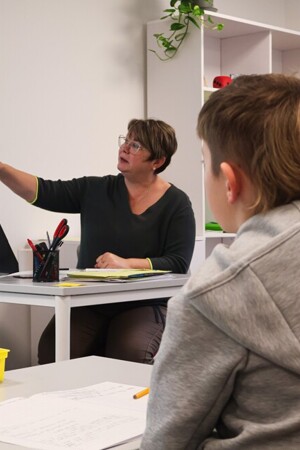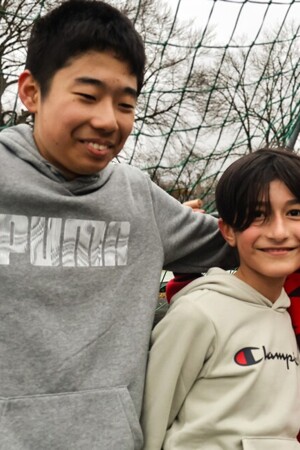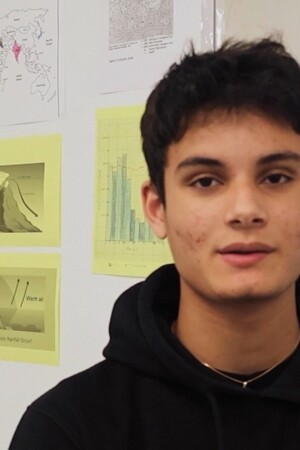British Curriculum
- Home
- Curriculum
- Curriculum Overview
Curriculum Overview
A British Education from Reception to A-Levels
At The British School in Gothenburg, we follow the National Curriculum for England, internationally recognised for its academic rigour, structured progression, and broad subject offering. Commonly referred to as the British Curriculum, this framework is trusted by families and schools in over 150 countries worldwide.
Our curriculum is designed to foster intellectual curiosity, critical thinking, and a lifelong love for learning. It offers a clear roadmap of a student’s educational journey, providing transparent benchmarks for academic progress at each stage of development. This clarity benefits students, parents, and educators alike.
Our curriculum is rooted in the National Curriculum of England, structured around key developmental stages:
-
Early Years Foundation Stage (Ages 3–5): Focused on play-based, exploratory learning.
-
Key Stage 1 & 2 (Ages 5–11): Core skills in literacy, numeracy, science, and the arts.
-
Key Stage 3 (Ages 11–14): Broad, balanced education with subjects including humanities, languages, technology, and more.
-
Key Stage 4 (Ages 14–16): IGCSE programme preparing students for advanced study.
-
Key Stage 5, Sixth Form (Ages 16–19): A-Level qualifications that open doors to top universities worldwide.
We emphasize critical thinking, creativity, and global awareness at every stage of learning.
Why choose British Education?
-
Globally Respected: Our curriculum aligns with the high standards of the UK education system and prepares students for entry into leading universities around the world.
-
Structured Progression: With defined learning goals at every stage, the curriculum ensures consistent development in knowledge, skills, and understanding.
-
Balanced and Broad: Students engage in a wide range of subjects, from maths and sciences to the arts, humanities, and physical education.
-
Skills for the Future: Emphasis is placed not only on academic success but also on character building, collaboration, digital literacy, and global citizenship.
| Key Stage | Typical Age | Year Groups | Focus Areas |
|---|---|---|---|
| Foundation Stage | 3–4 | FS1 – FS2 | Early years development, personal and social skills, pre-literacy and numeracy |
| Key Stage 1 | 5–6 | Year 1 – Year 2 | Literacy, numeracy, foundational science and arts |
| Key Stage 2 | 7–10 | Year 3 – Year 6 | Core academic skills, independent thinking, creative expression |
| Key Stage 3 | 11–13 | Year 7 – Year 9 | Subject specialisation, analytical skills, global awareness |
| Key Stage 4 | 14–15 | Year 10 – Year 11 | GCSE/IGCSE qualifications, academic depth and exam preparation |
| Key Stage 5 | 16–18 | Year 12 – Year 13 | A-Level studies or BTEC university readiness, independent learning |
Foundation Stage 1 & 2 (Ages 3–4)
At The British School in Gothenburg, Foundation Stage 1 and 2 provide a warm, nurturing introduction to school life. Guided by the Early Years Foundation Stage (EYFS) framework from the UK, our youngest learners begin their educational journey through a play-based, hands-on approach that encourages curiosity, creativity, and confidence.
During these early years, children are supported in developing essential skills in communication, social interaction, early literacy, numeracy, and motor development. Our Foundation Stage offers a safe, inclusive environment where every child is encouraged to explore, ask questions, and begin to build a lifelong love of learning.
Key Stage 1 (Ages 5–6)
Key Stage 1 at The British School in Gothenburg includes Year 1 and Year 2, building on the strong foundation laid in the early years. This stage supports children in developing greater independence, confidence, and core academic skills as they transition from play-based learning to more structured lessons.
The curriculum is designed to nurture well-rounded growth through carefully planned activities that balance academic subjects with creative expression and personal development. Students are introduced to key areas such as English, mathematics, science, and humanities, while continuing to explore art, music, physical education, and social skills within a supportive, inclusive environment.
Key Stage 2 (Ages 7–10)
Key Stage 2 spans Year 3 to Year 6 and marks a significant stage in a student’s academic and personal development. At this level, students build on their foundational knowledge while being encouraged to develop independent thinking and analytical skills. The curriculum becomes more detailed and subject-specific, laying the groundwork for deeper learning across core areas like English, mathematics, science, and humanities.
Through a blend of individual tasks and collaborative projects, students learn to apply reasoning, problem-solving, and creativity in practical contexts. Our teaching approach promotes active engagement, critical inquiry, and personal responsibility, while also supporting social-emotional growth. This balanced and forward-thinking stage prepares students for the academic rigour and increased expectations of Key Stage 3.
Key Stage 3 (Ages 11–13)
Key Stage 3, covering Years 7 to 9, offers students a broad and balanced academic programme that deepens their knowledge and critical thinking skills. This stage is designed to foster intellectual curiosity and support students in becoming more independent learners, preparing them for the increased academic demands of the IGCSE years ahead.
Students engage in a wide range of subjects including English, mathematics, sciences, humanities, modern languages, arts, and technology. Lessons are structured to promote inquiry, collaboration, and reflection, laying a strong foundation for informed subject choices in Key Stage 4. With continued focus on personal growth and academic achievement, Key Stage 3 is a pivotal phase in shaping confident, motivated, and globally aware learners.
Key Stage 4 (Ages 14–16)
Key Stage 4, which includes Years 10 and 11, is centred around the International General Certificate of Secondary Education (IGCSE), an internationally recognised qualification for students aged 14 to 16. This stage offers a flexible and comprehensive curriculum that enables students to tailor their education by selecting a combination of subjects that align with their strengths, interests, and future academic or career goals.
While core subjects such as English, mathematics, and science remain compulsory, students also choose from a wide range of elective options across humanities, languages, technology, and the arts. Over the two-year programme, students develop advanced subject knowledge and exam skills, culminating in a set of formal assessments at the end of Year 11. Key Stage 4 is designed to prepare learners for success in further education, such as A Levels, and to equip them with the skills needed for lifelong academic achievement.
Sixth Form (Ages 16–18)
After completing their IGCSEs, students at The British School in Gothenburg have the opportunity to specialise in their academic interests during Sixth Form (Years 12 and 13). This stage allows students to focus on fewer subjects but study them in greater depth, preparing them thoroughly for university education or future career paths. Students can choose between two main pathways: International A-Levels or the BTEC vocational programme, each offering unique benefits and tailored learning experiences.
The International A-Level pathway provides rigorous, globally recognised qualifications highly respected by universities worldwide. Typically, students select three or four subjects to study, with the option to complete either the AS-Level after one year or the full A-Level after two years. Alternatively, the BTEC Level 3 Extended Diplomas in Business Studies or Information Technology offer career-focused, practical learning that combines academic rigour with real-world application. The BTEC qualifications are equivalent to three A-Levels and accepted by many international universities. Entry into the Sixth Form requires a minimum of five IGCSE passes, including English and Maths, ensuring students are well-prepared for advanced study.




